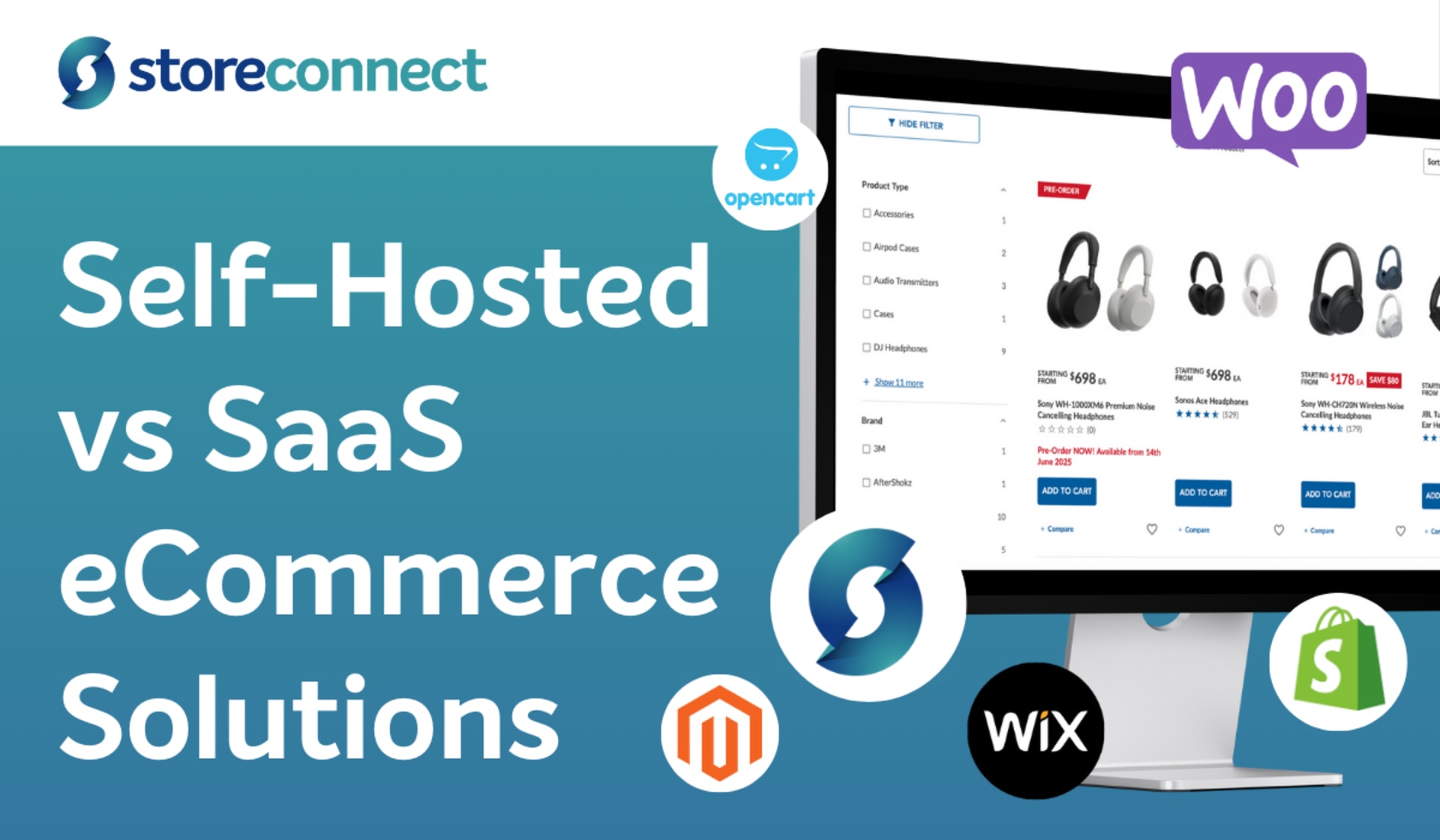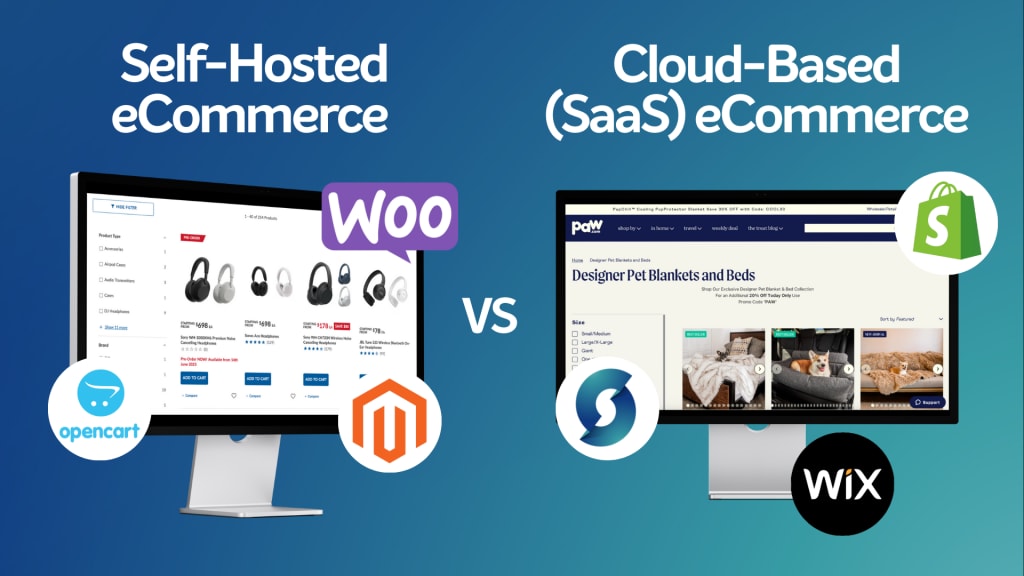
Comparing self-hosted and cloud-based eCommerce solutions. The Pros and Cons.
If you are reading this, chances are you are weighing up which kind of eCommerce platform best fits your business. Should you opt for a self-hosted solution that puts you in full control, or choose the convenience of a cloud-based platform?
Each option has its merits, and so understanding them is the first step to making the right decision.

For years, businesses have chosen between two main approaches: cloud-based software-as-a-service (SaaS) platforms and self-hosted systems you manage yourself. There is no single right answer. The best choice depends on your business model, technical expertise, budget, and goals. But there are clear benefits and risks to weigh up.
The rise of SaaS platforms shows just how well these tools serve a wide range of businesses. They often deliver excellent value with minimal complexity. But they can also introduce limits. Particularly when your business begins to grow and evolve.
Let us take a closer look at both options.
Why choose a self-hosted eCommerce platform?
Self-hosted platforms such as WooCommerce, Magento, and OpenCart allow you to run your store on your own hosting environment. You get full access to the software and complete ownership of the data and infrastructure.
Key Advantages:
-
Cost control: Although self-hosted systems often come with upfront costs (for servers, development, and design) there are no monthly subscription fees. Over time, this can work out more affordable, especially if your hosting needs remain stable.
-
Ownership & data control: You own everything. Your customer data, your custom features, your infrastructure. This is ideal for companies concerned about data privacy or needing advanced integrations.
-
Flexibility: You can tailor your site to your exact needs. From design and layout to backend systems and functionality, you can shape your store to reflect your unique brand and workflows.
Potential Downsides:
- Technical skill required: Running a self-hosted site means managing setup, updates, and troubleshooting. If your team lacks these skills, you may need external help, sometimes even for small changes, which can slow down operations.

- Maintenance & security: You are responsible for keeping everything up to date. That includes installing patches, managing backups, and protecting your site from threats. Failure to do this can expose you to significant security risks.
When does a SaaS platform make more sense?
Cloud-based SaaS eCommerce platforms such as StoreConnect provide a more hands-off experience. These services manage the technical details for you, allowing you to focus on business rather than IT.
Key Advantages:
-
Simplicity: SaaS platforms are designed to be user-friendly. You get access to ready-made templates, guided setup, and built-in tools. Even without a technical background, you can launch a professional store.
-
Support & maintenance: The provider handles server management, updates, and security. This removes much of the complexity, freeing your team to focus on customer service, product development, and sales.
-
Scalability: Most SaaS platforms offer pricing tiers that match your growth. As you scale, your system adapts. Many also support international commerce with currency conversion, language options, and shipping integrations.
Potential Downsides:
-
Customisation limits: While many SaaS platforms offer plug-ins and design options, they usually come with some restrictions. If your business requires very specific features or workflows, these systems might not offer enough flexibility.
-
Ongoing costs: Although easy to budget for, SaaS platforms often charge recurring fees. Add-on features may also cost extra. Over time, these fees can become a burden if the platform does not scale in line with your revenue.
What should you consider?
-
Business size and growth plans: Smaller businesses often do well with SaaS solutions. Larger or fast-growing businesses may benefit more from the flexibility of self-hosted systems.
-
Budget: SaaS platforms offer predictable monthly or annual costs with minimal upfront investment, making financial planning straightforward.
-
Technical capability: If you have limited IT support, SaaS platforms are easier to manage. Self-hosted systems require ongoing technical involvement.
-
Security & compliance: SaaS platforms often include built-in security. If you self-host, you must ensure your system meets current standards and regulations.
Where StoreConnect stands
StoreConnect combines the best of both worlds.
It is a SaaS platform that runs on Salesforce, offering deep flexibility, powerful integrations, and full control of your data, without needing a dedicated technical team.
It supports multistore eCommerce, B2B and B2C operations and delivers a single source of truth across sales, service, and marketing. It is designed to scale with your business.

To summarize…
Choosing between a SaaS or self-hosted eCommerce solution is a major decision.
SaaS systems are great for ease and convenience.
Self-hosted platforms offer control and customisation.
Evaluate your business needs, resources, and growth plans. And remember, solutions like StoreConnect now offer a hybrid option: SaaS software with the flexibility and data ownership businesses used to only get with self-hosted systems.
